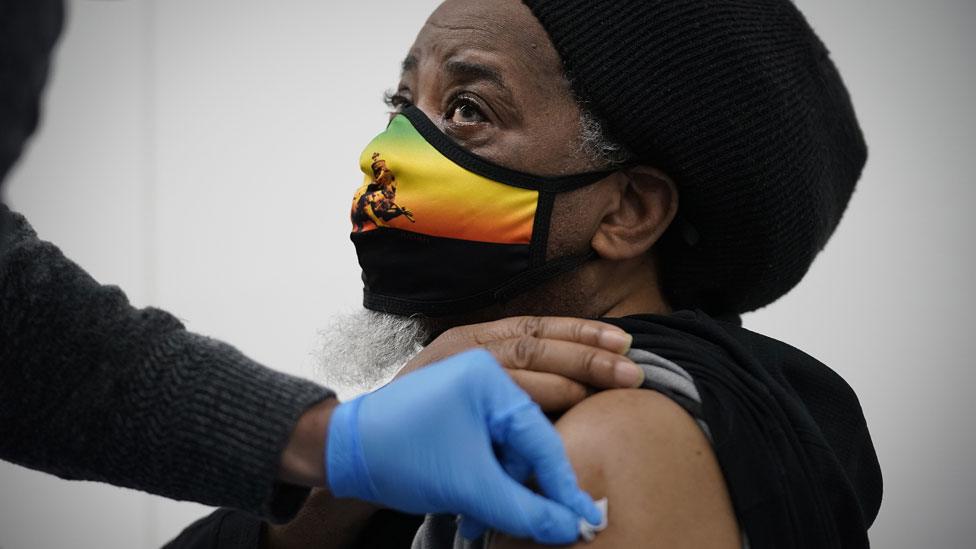Covid: Three South African variant cases have no history of travel
- Published
13 cases have been identified in Wales to date, Vaughan Gething told a press conference
Three people identified as having caught the South African variant of coronavirus have no history of travel to the region, Public Health Wales has said.
The cases, found in Conwy, Anglesey and Neath Port Talbot, are under investigation.
But the agency said there was no evidence of "sustained community transmission".
Opposition parties have called for widescale testing in response.
"Surge testing" is taking place door-to-door in some small communities in England where at least 105 cases of the variant have been found - Health Minister Vaughan Gething says ministers were considering more targeted testing in Wales.
The other 10 cases previously identified in Wales had been linked "to Southern Africa or to international travel," Public Health Wales said.
Scientists are worried that vaccines may not work as effectively against this variant than others.
Public Health Wales said the three cases under investigation also had no contact with anyone else who had the variant.
Anyone who is a contact of the cases will be contacted through the Test, Trace and Protect process, the organisation said.
Incident Director Robin Howe said: "It is too early to tell what is happening in terms of transmission, but as the health minister indicated earlier today this is a small number of cases, and there is no evidence at the moment that sustained community transmission has occurred.
"There is no evidence that the South African variant causes more serious illness. There is some evidence that it can spread more easily, and that vaccines - although still effective - may not work quite as well against it."
Mr Gething told a press conference that in the three cases of the variant being investigated "there is currently no clear evidence of how they may have caught the virus".
The two cases in north Wales had the "same genetic sequence and they were tested on the same day in the same laboratory".
"Public Health Wales is carrying out a detailed and forensic investigation into each of these cases to discover when and how each person became infected with the South African variant strain and whether there is any evidence of wider community spread," the health minister said.
'Targeted testing'
He said investigations would look at whether those who got the variant "came into contact with other people".
But he explained that ministers were not "going to look to an approach that has whole community testing across a whole local authority area".
"We're looking at targeted testing. That's why the backward contact tracing is really important to understand who those people may have been in contact with," he added.
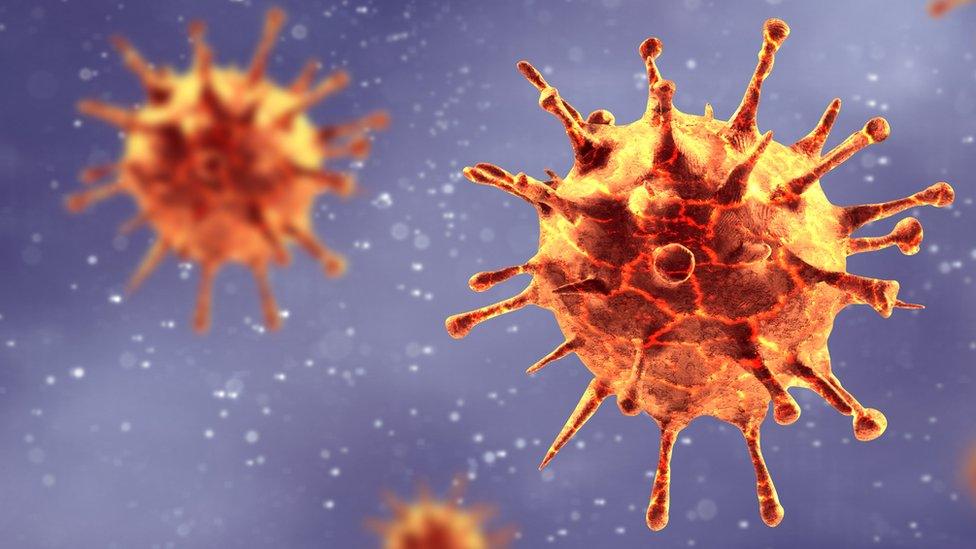
Scientists are worried that vaccines may be less effective on the South African variant
Will the vaccines work on the variant?
Professor Helen Rees, a member of the World Health Organisation (WHO) Covid-19 Emergency Committee, said she is concerned about whether the South African variant could be "less sensitive" to vaccines.
Speaking to BBC Wales Live from Johannesburg, Prof Rees said that some clinical tests had been done on the Novavax vaccine and the Johnson vaccine.
"In both cases it does look like the vaccine might have a reduced impact at a clinical level," she said.
The expert said the "critical" thing to do was to get as many people vaccinated as possible.
"The more people who have the infection, the more likely that we are to see the emergence of new variants," she added.
For the Welsh Conservatives, Janet Finch Saunders said the Welsh Government should consider "door-to-door testing" in the parts of Wales where the South African Covid variant had been identified.
Plaid Cymru leader Adam Price said there should be "whole-community testing" in the three areas.


There is relatively encouraging news in the detail released on the three cases not linked to international travel.
Both the cases in Conwy and Anglesey were found through investigations into clusters of infections - but no other examples of the variants have been found in those groups.
The individual in Conwy has also recovered. No other variant case has been associated with the person affected in Neath Port Talbot, who was already self-isolating while unwell.
Work is continuing to find out how this Covid variant got to these individuals in the first place if they had not been abroad.
The real concern with the South African variant is whether it is more resistant to Covid vaccines - although the mutations we are seeing at this stage of the evolution are very unlikely to make a vaccine completely ineffective.
But the truth is mutating and changing is how viruses survive, and the challenge to science is to keep responding with new treatments and tweaked vaccines.
That will be the reality of the next period of Covid, but that doesn't mean there isn't hope of brighter days ahead.

Will people be able to go on holiday abroad?
During the press conference Mr Gething said it was "too uncertain" to say that people would be able to enjoy a summer holiday abroad this year.
"I'm optimistic that people will be able to have a holiday break of some kind over the summer, I wouldn't want to forecast where that would be though," he said.
"We know many people are opting to stay within Wales or the UK but the challenge is that we know that from this summer, international travel to mainland Europe caused lots of mixing and a reintroduction of coronavirus into the UK.
"It helped to promote the growth of the virus through the autumn. So we're all still going to need to make responsible choices."
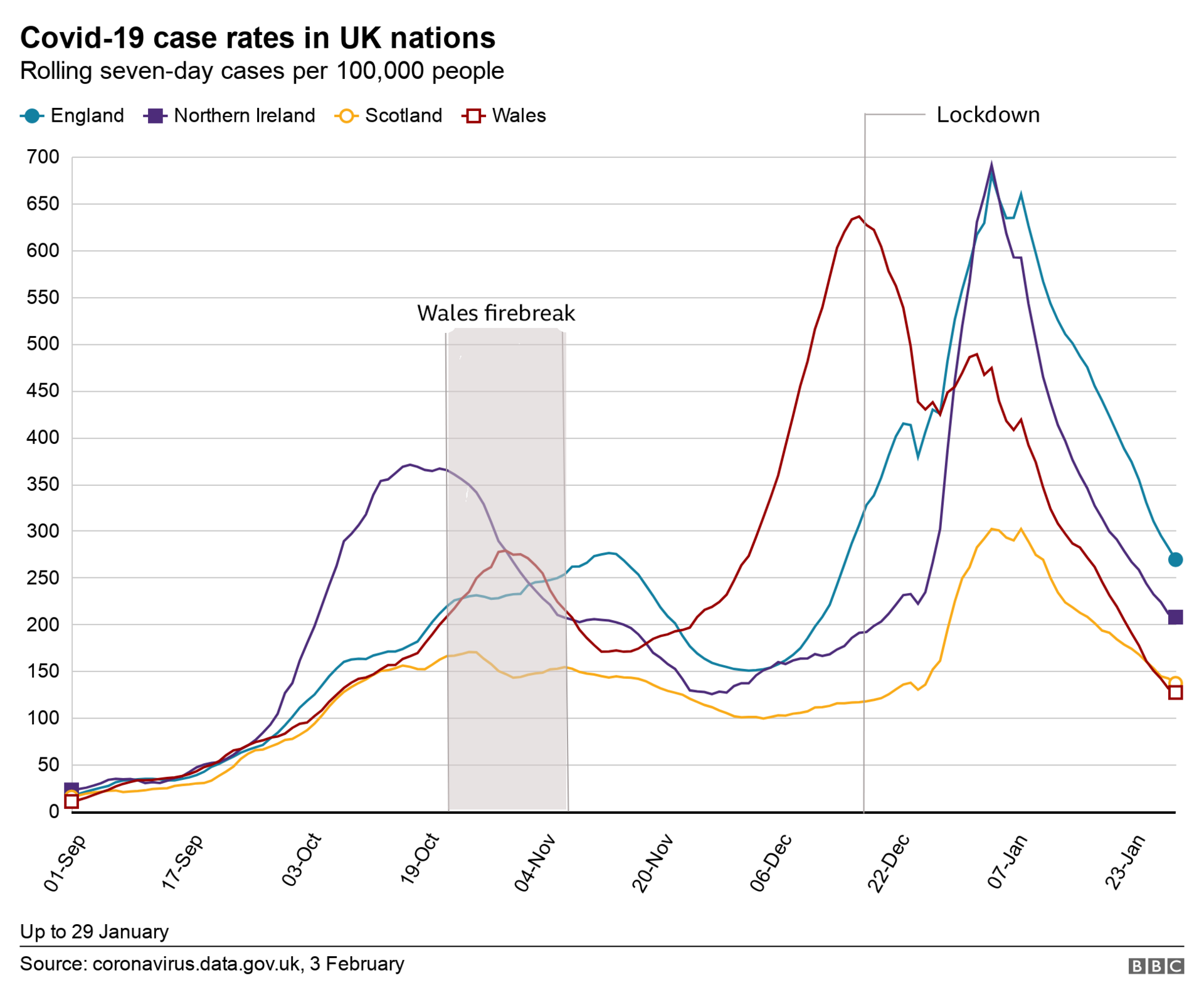
Lockdown easing 'unlikely'
The case rate in Wales has fallen from about 700 per 100,00 people over seven days before Christmas to 127 - the lowest of the UK nations.
But Mr Gething said Wales was unlikely to see a "radical and significant" easing of lockdown this month.
He said there would need to be "continued" reductions before the rules could be eased, and any available "headroom" would be used to help children go back to school.
A decision is expected on Friday about whether children aged seven and younger can return to primary school this month.
- Published2 February 2021
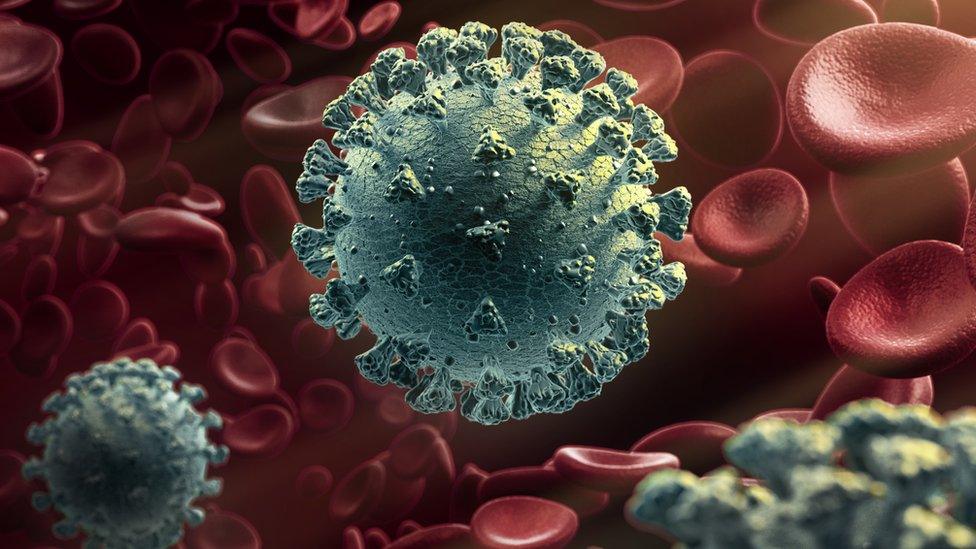
- Published2 February 2021
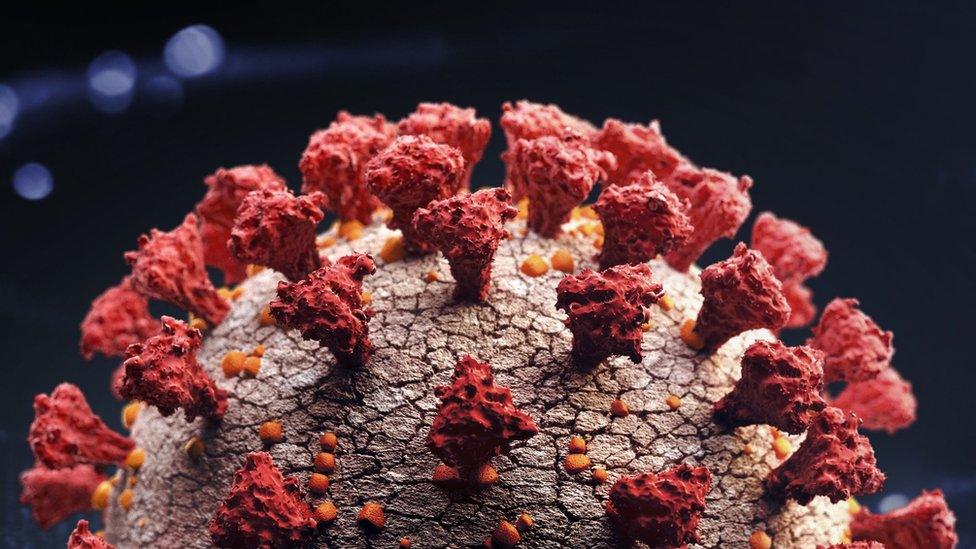
- Published3 February 2021
